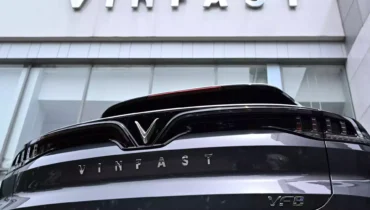GST 2.0 Impact on Car Prices: What Buyers Need to Know
The automobile market in India is full of excitement, with the GST 2.0 influence on car prices being the news of the day among buyers. The new GST slabs will result in a sharp fall in the prices of cars, which will begin on September 22. This action will provide a significant boost to the car industry and provide enormous savings to its users.
During many years, buyers were complaining of excessive taxes on cars and SUVs. In GST 2.0, the government has succeeded in simplifying the structure, and cars are affordable. This is the right moment to seize their dream ride among young professionals, first-time buyers, and families out of an upgrade.
GST 2.0 New Tax Slabs for Cars and SUVs Explained
The rates are far easier to understand and appeal to buyers under the GST 2.0 new tax slabs.
- Compact sedans, hatchbacks, small cars, and compact SUVs that have petrol engines that do not exceed 1,200CC or diesel engines that do not exceed 1,500CC are now charged under the 18 percent GST bracket.
- Larger SUVs, MUVs, and luxury vehicles fall in the 40 percent GST tax bracket – a major reduction over the previous tax of around 50 percent.
- EVs remain at a 5 percent GST, ensuring that the clean mobility mission in India is on schedule.
The greatest success in this case is the abolishment of cess, which had previously overrated the prices of well-known models. This is now that buyers have a clear idea of what they are paying as the tax rate is transparent.
You might also want to give this a read: Best Car Vacuum Cleaners in India: Autofy Edition
Cars and SUVs Getting Cheaper After GST 2.0
Among the most thrilling aspects of cars and SUVs 2.0, which are expected to be cheaper after GST 2.0 is the drop in price of the brand. Here are some examples:
- Maruti WagonR (Base Variant): Reduction of prices by 8.6%
- Maruti Swift and Dzire: Entry-level buyers see some significant cuts.
- Hyundai Creta (Base Variant): Price decreased by 3.6 per cent.
- Maruti Brezza: cheaper for SUV lovers.
- VW Virtus: Economy that makes premium sedans more alluring.
- GST 2.0 will appeal to all of you who need a hatchback on a budget or a stylish SUV.
Festive Season Car Prices: Why GST 2.0 Brings Big Savings
As the festive season approaches, festive season car prices with GST 2.0 is the buzzword on the market. The car sales normally increase to record levels every September-November since most families tend to make big purchases during such festivals as Diwali and Dussehra.
This year, shoppers are reaping twice, as well as festive deals on brands, and GST-led price reductions. This implies additional discounts, superior exchange rates, and increased value for money. One can say, GST 2.0 has transformed the forthcoming festive season into the holiday of the year to purchase a new automobile or SUV.
GST 2.0 and India’s Automobile Market: The Road Ahead
It is not the story of cheaper cars in the GST 2.0 and the automobile market in India. It represents a change in the way the Indian auto industry will develop. Analysts reckon the relocation will drive the demand in tier-2 and tier-3 cities, where affordability is a major factor.
To the automakers, this reform is a golden opportunity to increase sales, clear inventory, and introduce new models with competitive prices. To buyers, it is their long-term relief that offers a balance between what is affordable and what is chosen. In the future, GST 2.0 will establish an automobile industry in India that is more robust and stable.
Don’t forget to share it with your friends and family. Comment below!
Connect with us on social media for more exciting car and bike-related content!
Check out our Amazon Best Sellers: CLICK HERE




